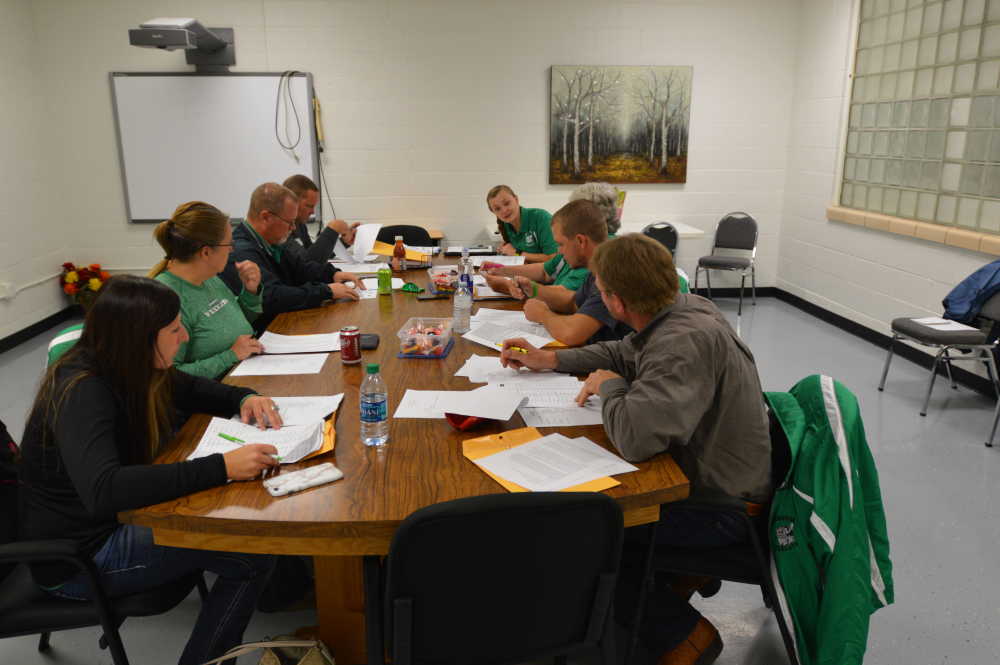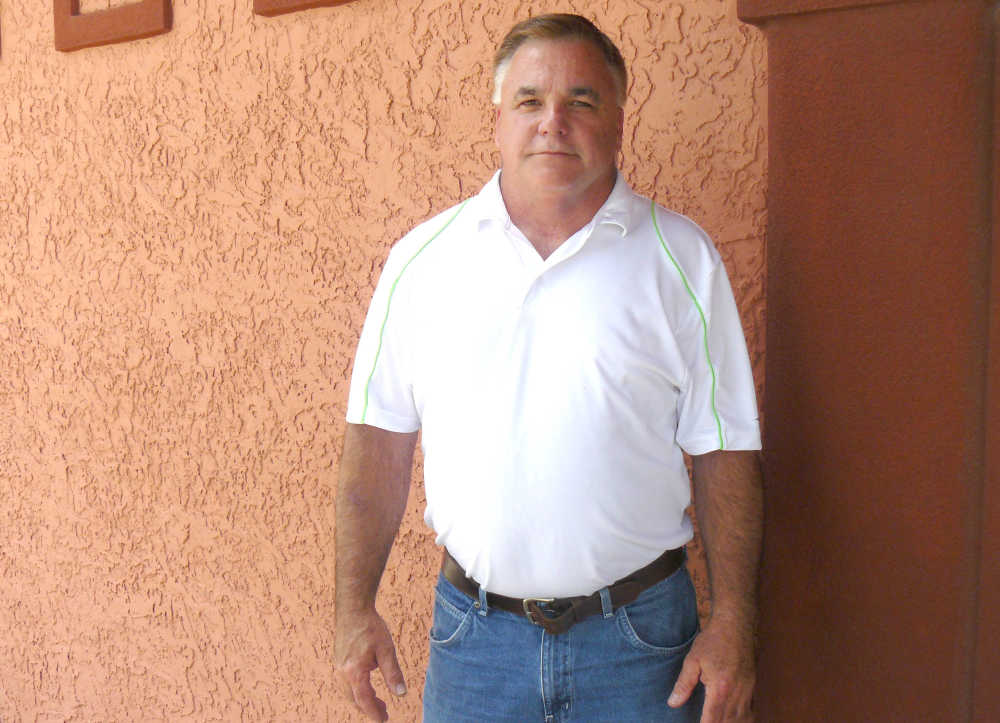Bronaugh R-7 board accepts superintendent’s retirement as it wrestles with finances

On Monday, Dr. David Copeland submitted his letter of resignation as superintendent of the Bronaugh R-7 School District following discussions with members of the R-7 school board.
Prior to Tuesday’s regular monthly meeting, the board issued a statement about its financial problems.
All seven board members were present for that meting including Board President Ryan Linn, Bill Rainey, Theresa Gooch, Jill Walrod, David Diggins, Corey Yount and Saundra Bogart.

In the evening’s open session, the board reviewed and approved payment of bills, heard reports and, following a presentation by the senior class faculty advisor, gave approval for the senior trip to St. Petersburg, Florida.
The closed session focused on the district’s leadership as well as severe financial strains.
On Wednesday, the board issued a statement on the superintendent’s retirement; that afternoon, a brief interview was conducted with Copeland.
While the departing superintendent has been in education for 31 years and is eligible to retire, he was under contract for several more years with the R-7 district.
While his retirement is effective at the end of this month, he is no longer at the school although for the time being, his wife Brenda continues her part-time work in the library.
The statement concerning the district’s finances reads:
“The Bronaugh R-VII School District is experiencing a rapid decrease in fund balances and the Board is in the process of identifying strategies to correct this issue. Over the past two school years, the District’s operational expenditures have increased due to the increased cost of programs for students. For a period of time, these expenditures appeared to be something the District could absorb, but it is no longer sustainable. Our student population has decreased while our cost to operate has increased. District revenue is not able to keep up with the current cost of operation for any sustainable period of time. At this time, the District is working with various entities to try to address this problem and will have a recovery plan in place in the near future. We ask that our community continue to show our students and staff support while they work tirelessly to educate our kids. The Board will continue its work to rectify the current financial situation and provide updates to the community as a plan for success is created.”
Prior to the board meeting, Linn, emphasized that Copeland’s departure is in no way due to any misappropriation of funds “but as our statement says, our district is experiencing a rapid decrease in fund balances and we felt the need for new leadership.”
The statement concerning Copeland’s departure reads:
“At its meeting on Tuesday evening, the Board accepted Dr. Copeland’s letter of retirement, effective at the end of this month. We wish him well in his next chapter. The Board has already begun the process of seeking out a superintendent. Given that it is mid-year, there may be an interim superintendent for the remainder of the year before finding a long term leader for the District. At this time, Principal Jordan Dickey is assisting the Board with a great many tasks, in addition to her regular administrative duties, to help the District run business as usual. The support of our staff during this time of transition has been and will continue to be instrumental, and we appreciate all they do each day to continue to focus on the education of our students.”
In her report to the board in open session, Dickey said, “We got four new students today; that means we have an enrollment of 173 with four more possibly on the way.”
A Wednesday telephone interview with Copeland began with him stating, “One-hundred percent of the financial problems the district faces are related to the High Need Fund and the problems it creates.”
The district has two students for whom special education is not enough; each needs a specialized facility.
“It’s costing the district $1,000 a day for each of them which means $60,000 a month,” said Copeland. “There is no way a small district like Bronaugh can absorb such costs.”
Commenting about this back in June he said the problem we have is not with the students, their needs or their families.
Said Copeland, “Look, if it was my child, I’d demand the district do all it can to provide the best possible education for my child.”
The district had tried to find a less expensive facility but one parent hired an attorney while attorneys for the R-7 district tried to negotiate with the parent to find an acceptable alternative. When all other avenues were rejected, the district was told by its attorneys the rules clearly state parents have ultimate control of such educational decisions, in spite of the cost and affect it can have on the district.
Asked if the state or federal government provides funding to recoup such costs the former superintendent said the state does but added there is a two-part catch to those reimbursements which exacerbate the financial woes of the district.
While the mandate to educate such students comes from the federal government, the program which reimburses districts is managed by the Missouri Department of Elementary and Secondary Education.
Established by the Missouri General Assembly in 1998, modified in 2005 and as defined by DESE, “The High Need Fund was established … to provide funding support for a [district] with ‘High Need Students.’ These students are special education students whose educational costs exceed three times the [district’s] current expenditure per Average Daily Attendance (ADA).”
According to Copeland, Bronaugh’s actual per pupil spending – its ADA – is about $8,000 per student. This means the district would receive reimbursement for costs over $24,000 per pupil.
As Copeland told the board in its regular meeting in June, “According to an email the district received, the typical time it’ll take for us to receive the portion which the state will reimburse us is currently 12 months and they warned us it would be likely 18 months from the time we submit our costs until the time we see the money.”
He told the board this creates a huge cash flow problem.
“And it gets worse,” said Copeland in the Wednesday telephone interview.
Two years ago, the district received a reimbursement of $142,000. DESE then added the funds spent by the district ($24,000) to the total amount being spent on those students which significantly raises the ADA not just for those students but is the number used by DESE as the ADA for all of Bronaugh’s students.
“And so the next year, instead of getting reimbursed after we spent $24,000, it worked out to be $84,000 before they’d reimburse us and it keeps growing like that every year,” explained Copeland. “Right now, DESE lists Bronaugh’s ADA as the second highest in the state; only Ladue in suburban St. Louis is higher; it’s ridiculous.”
Copeland was told by DESE that when first created the demand on the fund quickly outstripped appropriations and so the formula for the fund was revamped so most districts would not use it for more than one year.
He said larger districts can either absorb the costs or have the staff and an appropriate facility of their own; the problem is not with the children but with funding.
Said Copeland, “You know I talked to Ryan Linn (board president) today and I said you know I wish you nothing but the best and he said ‘I know that,’ and so in spite of what a few may think, we both felt it was time for me to leave and we part on good terms.”
While he began his career as teacher and coach and then as a principal, Copeland served as superintendent at the fourth largest district in Alabama and then in Missouri at Cass-Midway before coming to Bronaugh in 2015.
He and his wife look forward to spending more time with their four grandchildren (ages 3-11) who reside in Kansas City. He spoke of either being up there or hosting them down here on their small farm.
Concluded Copeland, “Hopefully [the R-7 district] can find answers and come out this and continue because as I’ve said so many times before, of all the schools I’ve been at, and I mean this, the staff at Bronaugh is the best; I wish them well.”
